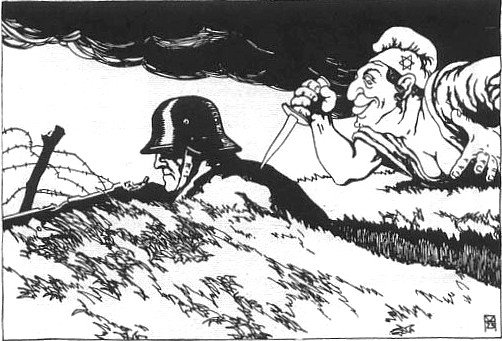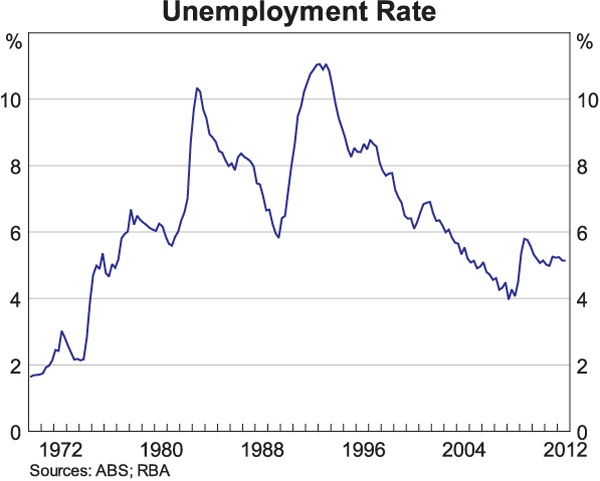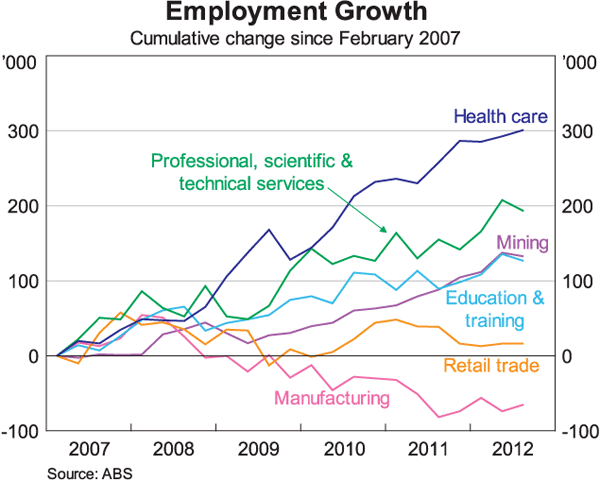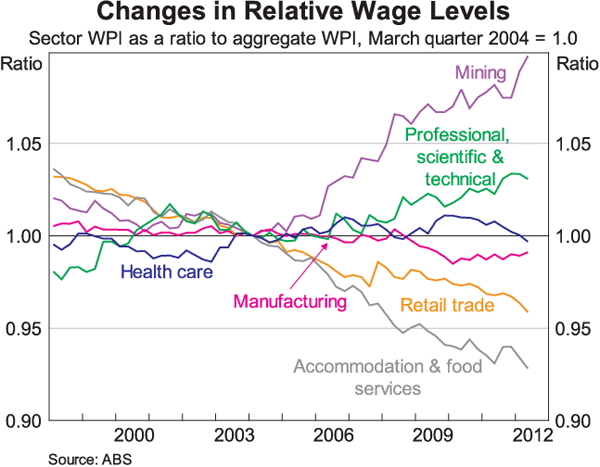 |
| Hindenburg (left), Ludendorff (right), 1917. [A} |
August/September 1918: The Imperial General Staff, headed by field marshal Paul von Hindenburg and general Erich Ludendorff, reached the conclusion that Germany had lost the war.
Although German armies were fighting on foreign lands (German borders still largely unviolated), Germany had suffered 2.5 million fatalities (about a fifth, civilians lost to starvation), plus 4.25 million wounded. Bulgaria (a German ally) collapsed, and the Austro-Hungarian Empire was close to. The Allied naval blockade reduced the Imperial Navy to impotence, denying German access to foodstuffs and raw materials required for its war effort. With civilian protests demanding food increasing in number and intensity, the internal political situation in Germany was deteriorating rapidly. To make things worse, the full weight of the American intervention only began to be felt.
Diplomatic negotiations started, US president Woodrow Wilson demanding, among other things, the Kaiser's abdication, and the democratization of Germany. Hindenburg and Ludendorff, de facto rulers of Germany, would need to assume responsibility for the defeat; the consequent loss of face to the General Staff could lead to its losing influence in a democratic Germany.
Forced by the circumstances, Hindenburg and most of the General Staff accepted, in spite of the drawbacks; Ludendorff, however, perhaps affected by depression, changed his mind and resigned in protest, under disputed circumstances.
Communists and Social Democrats
Since the latter half of the 19th century, the Social Democratic Party of Germany (SPD) included all shades of Marxists. The SPD right-wing, which would eventually abandon Marxism, was headed during war times by figures like Friedrich Ebert, Gustav Noske and Philipp Scheidemann. The SPD left-wing, headed by Karl Liebknecht and Rosa Luxemburg, among others, gradually left or were expelled from the party, initially over the issue of supporting the
war effort, which they opposed:
"The present war was not willed by any of the nations participating in it and it is not waged in the interest of the Germans or any other people. It is an imperialist war, a war for capitalist control of the world market, for the political domination of huge territories and to give scope to industrial and banking capital."
German Revolution 1918-19
 |
Dolchstoßlegende.
Austrian postcard (1919) [B] |
October 1918: Prince Max von Baden, with Hindenburg's support, announced the constitution of a new cabinet, including the social democrat Ebert, in an attempt to neutralize the social democrats.
November 1918: The revolt of the High Seas Fleet, based in Wilhelmshaven and Kiel, spread among civilians all over Germany. The former SPD left (grouped in the Spartacus League and the USPD) supported the revolt, with Anarchist elements. Kurt Eisner (USPD) proclaimed the republic in Bavaria, in a bloodless revolution, where private property would by guaranteed. Facing violent armed repression in Berlin, the Spartacists, led by Liebknecht, decided to respond with violence (against Luxemburg's opposition). Kaiser Wilhelm II fled to the Netherlands and prince von Baden resigned, Scheidemann declared the Republic (November 9), and Ebert was left in charge as president and chancellor. Ebert and general Wilhelm Groener (de facto Army commander) reached an agreement: the General Staff would support the Ebert cabinet, in exchange for keeping control over the German Army; the Army was given free hand to deal with the revolt. Ludendorff, in disguise, left for Sweden. There he went on to propagate the
Dolchstoßlegende, the stab-in-the-back myth: the victorious German armies had been betrayed by socialists, communists and Jews. Absent Ludendorff and Hindenburg finding it below his station to sign the armistice, the signature fell to center-right politician Matthias Erzberger (November 18).
----------
The Ebert-Groener agreement had serious consequences not only for the development of Germany into a supposedly Western-style liberal democracy, but would set a precedent that today's European politicians seem too eager to follow: in practice a large role in the violent suppression of the left-wing revolt fell on the illegal right-wing ultra-nationalist and conservative paramilitary Freikorps, whose rabid anti-Marxism recommended them to the ruling classes, including the newly promoted SPD leadership. Unfortunately for Jews and other ethnic minorities, these groups were often also anti-Semitic, racist and xenophobic.
Aftermath
The Army/Freikorps ruthlessly suppressed the left-wing revolt on Ebert's behalf. Luxemburg and Leibknecht were murdered (January 15, 1919) by a Freikorp unit under the command of captain Waldemar Pabst. Isaac Deutscher, the left wing British historian, reportedly wrote:
"In her assassination Hohenzollern Germany celebrated its last triumph and Nazi Germany its first".
Pabst (who publicly boasted,
"I had them executed") framed his subordinates for the crime. In 1920 he played a leading role in a failed putsch against his former ally, Ebert. Although he never officially joined the NSDAP, his right-wing credentials were useful to gain a directorship in German and Swiss weapon manufacturers. After WW2, Pabst may have been involved with neo-Nazi activities. He died peacefully in Germany, at the age of 89, in 1970.
Ebert, who remained chancellor until his death at the age of 54, in 1925, survived the above mentioned 1920 coup d'etat attempt by his former Freikorp allies, but never was fully accepted by the rest of the German ruling classes. The
foundation named after him is the main educational/research outlet of the current SPD.
Scheidemann, who proclaimed the republic, and became chancellor after Ebert was named president, self-exiled to Denmark after the Nazi takeover. He died in 1939.
Noske, who personally directed the repression in Berlin, lived an apparently uneventful live under the Third Reich until 1944, when he was arrested as suspect for the 1944 plot to murder Hitler. The allied advance saved him from execution. He died in 1946.
Erzberger was murdered (August 16, 1921) by elements linked to the Freikorps. His crime was to sign the armistice.
Eisner was murdered on February 20, 1919. He had his resignation to the position of Bavarian Premier with him. His murderer, Anton von Arco-Valley was an Austrian national, radical conservative and pan-Germanic nationalist, who served under the German flag, apparently not linked to the Freikorps.
Arco-Valley, whose mother was an Austrian aristocrat of Jewish faith, was, nevertheless, intensely anti-Semitic. Allegedly, he hoped the murder of Eisner (who was both Jewish and socialist) would prove his bona fides to the Thule Society (an aristocratic occultist group in Munich linked to the Deustche Arbeiterpartei, DAP). Reportedly Arco-Valley said
this about Eisner:
"Eisner is a Bolshevist, a Jew; he isn't German, he doesn't feel German, he subverts all patriotic thoughts and feelings. He is a traitor to this land."
Another Austrian national living in Bavaria, corporal Adolf Hitler, was recruited as Army undercover intelligence operative in July 1919. In that capacity, he joined the DAP.
A fanatical pan-Germanic nationalist and anti-Marxist, like Arco-Valley, Hitler, unlike his aristocratic counterpart, understood how appealing socialist ideas were to the German working class. Therefore, he appropriated the socialist rhetoric, sans class conflict, plus a furious anti-Semitism and prefixed Nationalsozialistische ("nationalsocialist") to the Deutsche Arbeiterpartei title, resulting in NSDAP. On November 8, 1923, with the support of Ludendorff and his own militia (the SA), Hitler attempted a putsch, that failed. On April 1, 1924, Hitler was sentenced to 5 years in the Landsberg Prison. He occupied the same cell Arco-Valley had occupied.
 |
March 1919 Revolutionaries
after summary execution. [C] |
Thousands of German workers, activists, trade unionists and common people caught by the indiscriminate repression, shared Luxemburg, Leibknecht, Eisner and Erzberger's fate. The permanent and radical rift between communists and Anarchists, at one hand, and social democrats, at the other, facilitated Hitler's rise to power. Communists, social democrats and Jews organized their own militias (Rotfront, Eisernes Front, and Reichsbund Juedischer Frontsoldaten, respectively), against each other and against the nationalist Freikorps and the SA.
On January 30, 1933, president Hindenburg appointed Hitler chancellor.
 |
President Hindenburg and chancellor Hitler
(March 21, 1933) [D] |
Image Credits:
[A]
Hindenburg and Ludendorff (1917). Bundesarchiv, Bild 146-1987-127-09A / CC-BY-SA. Wikipedia.
[B]
Illustration of the Dolchstoßlegende. Austrian postcard (1919). Wikipedia.
[C]
March 1919 Revolutionaries after summary execution. Bundesarchiv, Bild 102-00539 / Groß, Alfred / CC-BY-SA. Wikipedia.
[D]
President Hindenburg and chancellor Hitler. (March 21, 1933). Bundesarchiv, Bild 183-S38324 / CC-BY-SA. Wikipedia.




.png)











